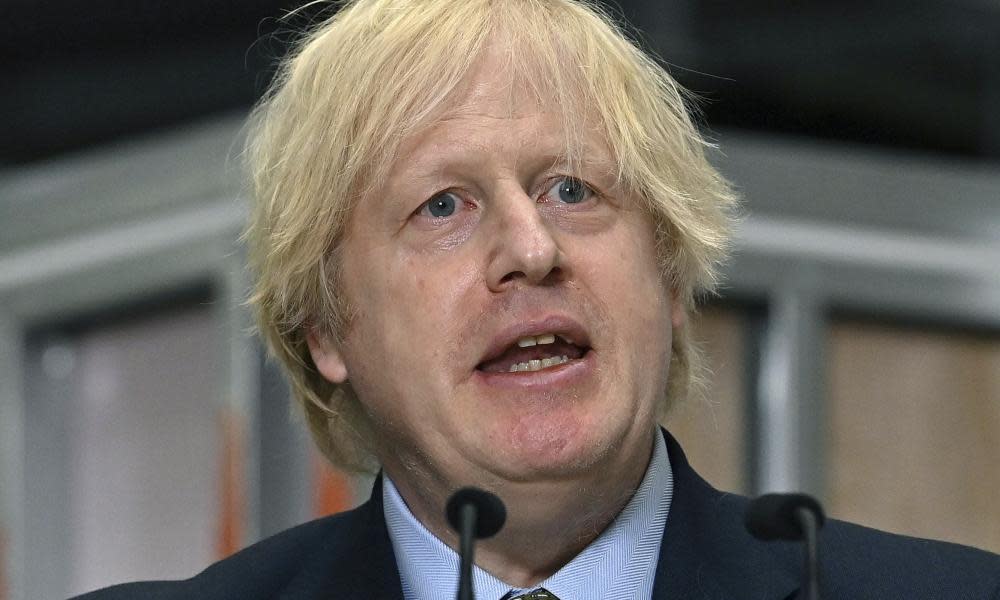Boris Johnson accused of misleading parliament over DfID merger

Boris Johnson has been accused of misleading parliament over who was consulted before the merger of the Department for International Development and the Foreign and Commonwealth Office.
Sarah Champion, chair of the international development committee (IDC), said despite the prime minister’s assurances that there had been “massive consultation” ahead of the announcement last month, evidence suggested there had not been.
During an IDC session about the merger on Monday, Anne-Marie Trevelyan, the international development secretary, was asked what consultation had taken place with partner organisations and NGOs. Trevelyan told MPs: “As with any government change like this, the announcement came first to parliament. But since then, the home secretary, alongside Baroness Sugg, who is always the lead on NGOs, have been meeting with them regularly.”
Nick Dyer, the acting permanent secretary of DfID, confirmed that he and Sugg had met with NGOs last week.
Following the evidence session, Champion said: “In his statement to the house about the merger he [the PM] was very clear that there had been massive consultation. They had started the integrated review about it, which was paused. But there clearly hasn’t been consultation.
“It is absolutely the right of the prime minister to change the machinery of government as he sees fit. However, at this time when Covid-19 is reaching its peak in the developing world and there’s issues with Hong Kong and Russia, it seems incredibly ill-timed to have a merger with no consultation.”
There has been growing anger over the merger from many quarters. Senior Tories and former international development ministers have urged Johnson to at least install a development minister in the cabinet. NGOs have also expressed their concern over the UK’s commitment to poverty reduction in poor countries.
Related: Alarm bells ring over aid spending amid lack of clarity on DfID merger
After speculation last week about funding cuts to aid programmes, Trevelyan told MPs that her department had to cut £2bn from its budget this year, the impacts of which would be “unavoidable”.
She stated that the 0.7% of gross national income earmarked for overseas aid would amount to less money in 2020 and 2021.
She said spending priorities would be humanitarian response programmes, alongside girls’ education and tackling the climate crisis. Spending for the CDC group – the UK’s development bank – this year would be reduced and other areas delayed or paused.
Trevelyan, who will retire as secretary of state in September, said she could not confirm whether the aid watchdog, the Independent Commission for Aid Impact, would continue, but added that the new department was a “chunky” one involving large amounts of taxpayers money and foreign policy that required parliamentary oversight.
“I would be genuinely surprised if they was any appetite to reduce oversight,” she told MPs.
Trevelyan said the new Foreign, Commonwealth and Development office would be a “blended” department, rather than an FCO takeover, but said no savings were expected to be made.
Dyer confirmed there would be no forced redundancies in the new department. However, he said one of the “more challenging issues to grapple with” was the difference in salaries and allowances of staff in the departments and how to balance that. A transition team of 30 people would oversee the merger, he said.
In April, Trevelyan said the pandemic could undo 30 years worth of international development work, with a bleak picture for the world’s poorest.

 Yahoo News
Yahoo News 
